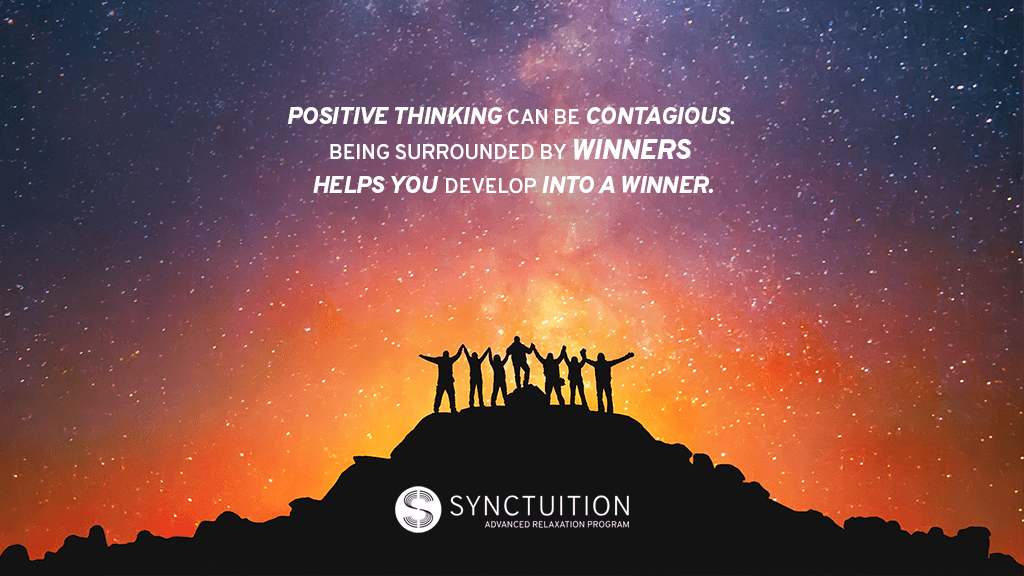7 Steps To Become More Positive
Positive people live positive lives. According to multiple studies, having a positive attitude can help you manage stress and anxiety, and develop the kind mindset that leads to success. To be positive involves sending out good energy into the world and attracting incredible things. It’s also about keeping an optimistic view in the most challenging moments. It can be easier said than done because positivity has to grow in your mind. If you would like to transform your life for the better, here are 7 steps you can follow to be more positive.
Why Being Positive Is So Difficult
If positive thinking leads to so many wonderful benefits, why aren’t people more successful or happier? We live in tough times and many people are struggling to stay optimistic. On top of this, we are constantly exposed to negative news or information in the media about every wrong thing that’s going on in the world.
Despite all of the positive things in our lives, we remain focused on the negative. This might have to do with how our brains are hardwired. The human brain is constantly seeking out information and, when doing so, retains more negative than positive data. This is what is known as “the negative bias”. When the brain perceives negative stimuli, it fires electrical activity.
This is why it is so easy for us to remember the hurtful words a partner or friend said during an argument. It could have been days or weeks ago, yet, we continue reliving that moment with equal intensity. This annoying brain feature has to do with evolution. Thousands of years ago, our brains developed systems to help our ancestors flee from predators. Although useful for keeping us safe, this brain apparatus has a downside — it doesn’t fully switch off. In recent years, however, experts have discovered several methods to avoid this instinct.
Related: Harness The Power Of Positive Thinking

7 Steps To Become More Positive
Attracting success, health, and happiness with positive thinking is not something that happens immediately. It’s not enough waking up one day and telling yourself, “I’m going to be a positive person from now on.” This is even more complicated when you have spent the last couple of years prioritizing your negative thoughts. Think about positive thinking as a skill that has to be studied, developed, and mastered. Just like going to the gym or learning a new language, positive thinking has to be perfected for you to see good results. Here are 7 things you can do to become more positive:
1. Change negative statements into positive statements
It’s easy to fall into the trap of negative self-talk. Many times, we do this without noticing and, unfortunately, language has a great impact on our lives. In this case, identifying negative self-talk is an essential skill that should be fostered. When you are at work or school, for example, and are given a challenging task, it’s very natural to say or think: “there is no way this will work. It’s too difficult.” Instead, rework those statements and say: “I will try to make it work. I’ll approach this task from a different angle.”
If you are too caught up in this habit and are struggling with positive affirmations, start by following one simple rule: don’t say anything to yourself that you wouldn’t say to anyone else. When a negative thought crosses your mind, analyze it rationally and answer with an affirmation of what is good about you. Think about the things you are grateful for in this life.
2. Practice gratitude every day
You may have so many wonderful things going on in your life. Sadly, you may be taking them for granted. According to research by The University of California and Washington University, expressing gratitude increases joy, which is a distinct positive emotion. Joy boosts gratitude, making it a great cycle to be stuck in.
Every morning, before starting your day, be grateful for having a bed to sleep on, for having friends or family who care about you, for being employed, or for being alive. This is the best way to shift your attention away from negativity, disappointment, and remorse. If you are struggling, you can try writing a letter or note to a person you remember fondly, who made a positive impact on your life.
3. Keep a journal
Although journaling might sound a bit old-fashioned, this practice has gained momentum in recent years. Writing down your thoughts and emotions is more than a means of self-expression; it does wonders for your health. Evidence draws strong links between journaling and stress management and emotion acceptance. Most amazingly it suggests that, when practiced frequently, journaling’s benefits become long-term, contributing to faster healing.

Among the many benefits of keeping a journal is a positive mindset. Positivity journals consist of a record of everything memorable and wonderful in your life. This can be a happy memory, good news you just received, or a goal you managed to achieve. The best thing about this practice is that you don’t have to be a skilled writer. Simply write down what you want using your words. If you don’t know where to start, begin by writing 3 positive things every morning or evening.
4. Help others
Step outside of your daily routine and look at the world around you. Most of the time we are drowning in our worries, creating negative feelings, and ignoring others. By completing a random act of kindness, you will start seeing the world from a broader perspective and will be rewarded with positivity.
An excellent way to practice kindness and help those in need is by volunteering. According to a 2013 study published in Psychology and Aging, volunteering boosts physical health (helps to prevent cardiovascular disease) and mental health. It also gives you a stronger sense of purpose and greater self-esteem — all positive factors that should be present in our lives.
5. Practice healthy habits
Your mind and your body are engaged in a permanent conversation. To keep a positive mind, you need to keep your body in an optimal state of health by practicing healthy habits. The physician Anthelme Brillat-Savarin said, “Tell me what you eat, and I will tell you what you are.” What you eat affects how you feel and think. For example, a diet high in sodium can lead to dehydration and high blood pressure. These symptoms have related psychological manifestations such as irritability, mood swings, and depression.
Of course, following a healthy diet is not the only way to take care of your body. Being physically active also contributes to a positive mood change. You don’t have to train for a marathon or spend hours in the gym. A systematic review published in the Journal of Happiness states that a little as 10 minutes of exercise per day or 1 day of extensive physical activity might result in increased levels of happiness and positivity.
Practicing healthy habits is not easy. If you need a bit of extra help, consult an expert nutritionist or physician to understand the next steps to take.
6. Surround yourself with positive people
If you put a crab inside a bucket, it will climb up easily. Now, if you put two or more crabs in the same bucket, things get more complicated. Once one crab attempts to get out, the others will pull it back down into the bucket. This behavior is not exclusive to crabs. Many times, human beings are victims of the “crab mentality”. This is true when it comes to negativity.
Your friends, relatives, or colleagues’ negativity can be contagious and prevent you from achieving what you want. Sadly, it is not possible to “block” them in real life, especially when you care about them. Luckily, positivity can also be contagious. Reach out to positive people and engage in optimistic conversations. It can also work its way around and you can spread positive energy. If a friend is talking about a negative event, for example, approach the topic from a more optimistic angle.

7. Meditate
The “happiest man” on Earth, Mattieu Ricard, advises cultivating positive emotions until you become one with them. Ricard, a Buddhist monk and former molecular geneticist, took part in a 12-year brain study on meditation and compassion by neuroscientists at the University of Wisconsin. The scans revealed that Ricard’s brain showed excessive activity in his brain’s left prefrontal cortex compared to its right counterpart. This gave him a superior capacity for happiness and a reduced propensity towards negativity.
“There are natural antidotes to emotions that are destructive to our inner well-being,” says Ricard. He proposes mind-training through meditation as the best method to cultivate positive emotions. Meditation is the best way to achieve mind transformation. By focusing on the present moment, you learn to approach negativity from a mindful and broader perspective. What’s more, you become familiar with more positive ways of being and perceiving things.
Meditation does not only help you to become more positive. This is an ancient practice with over a hundred benefits that can boost your mental and physical health. Constant meditation practice leads to a greater sense of motivation, purpose, empathy, compassion, and a powerful immune system. Given all those perks, it’s no surprise why meditators live a balanced and positive existence.

Making Meditation Easier and More Effective
Ricard recognizes that fostering happiness and positivity through meditation is not something easy; it requires practice and commitment. With all our responsibilities and tight schedules, meditation can be tough work. However, there are easy and accessible ways to meditate.
At Synctuition, we have developed the most advanced program to help you cultivate positive thinking through sound meditation. Each Synctuition audio journey incorporates beautiful 3D sounds, binaural beats, and relaxing ASMR. Journeys such as Looking At The Bright Side, Happiness, Positivity, Smile, Light in the Tunnel, and many others invite you to always look at the bright side to step out of negative situations.
Synctuition’s journeys have inspired over 3 million users to see the glass as half full. Mayowa, one of our users, opened up about their experience listening to Looking At The Bright Side, saying: “I actually needed this so much, because I have been feeling really pessimistic about a lot of stuff lately and I am not the “glass is half empty” kind of person. This was really a delight. Thank you!”
Related: Advanced Evening Relaxation, A Deeper Look Into Synctuition







